- March 04, 2021
- By Annie Krakower
“Women are represented already by their husbands, fathers and brothers.” “Men, by nature of their occupations, know more about business than women, and hence are better fitted to run a city or a state.” “The bad women would outvote the good ones.”
One by one, suffragist Alice Stone Blackwell knocked down such arguments against the right of women to vote in a Just Government League of Maryland pamphlet, circa 1910. Her essay, along with impassioned arguments for the rights of Black Americans, young people and others unfairly pushed away from the ballot box through our country’s history, is one of more than 200 documents, photos, posters, videos and audio clips from UMD Libraries’ collections featured in a new virtual exhibition, “Get Out the Vote: Suffrage and Disenfranchisement in America.”
“People come at this topic in a lot of different ways, and often it’s not with a deep understanding of history,” said curator Laura Cleary, instruction and outreach librarian for Special Collections and University Archives. “So this exhibit gave us a chance to show the history of voting rights in the United States and really illustrate it using the items that we have in our library.”
Research for the project started in winter 2019, inspired by UMD’s collections of grassroots organizations such as the League of Women Voters, the Committee on Political Education and youth activist group Frontlash. But the work took on added significance with last year’s anniversaries—the 150th of the 15th Amendment that guaranteed African Americans suffrage, and the 100th of the 19th Amendment that did so for women—as well as November’s contentious presidential election, Cleary said.
Originally conceptualized as a physical exhibit, COVID-19 pushed “Get Out the Vote” online. While curators and researchers had to get creative with limited access to Hornbake Library, the virtual platform gave them more space for documents, aided by the discovery of a new way to display multi-page items.
“It was learning the big story, then finding items in our collections that could tell it well,” said Rigby Philips ’21, a history major and exhibit researcher.
Some highlights of those uncovered documents include copies of The Revolution, a newspaper established by suffragists Susan B. Anthony and Elizabeth Cady Stanton; posters and invitations from Maryland chapters of the League of Women Voters; photos and publications from UMD activists; and what Cleary called “striking” means of disenfranchisement, like literacy tests and poll tax documents.
By displaying repeated cycles of both restrictions and expansions of voting rights, the exhibition’s curators hope to show that the battle isn’t over, especially as state legislatures across the country are considering new rules and restrictions.
“The important thing for me was to show (the history), and then show what’s happening today and the ways that it looks different, but it’s the same thing happening over and over again,” Cleary said. “Everyday people are at the root of this change—if we raise our voices, we can effect change.”
Scroll through some of the exhibition’s items below:
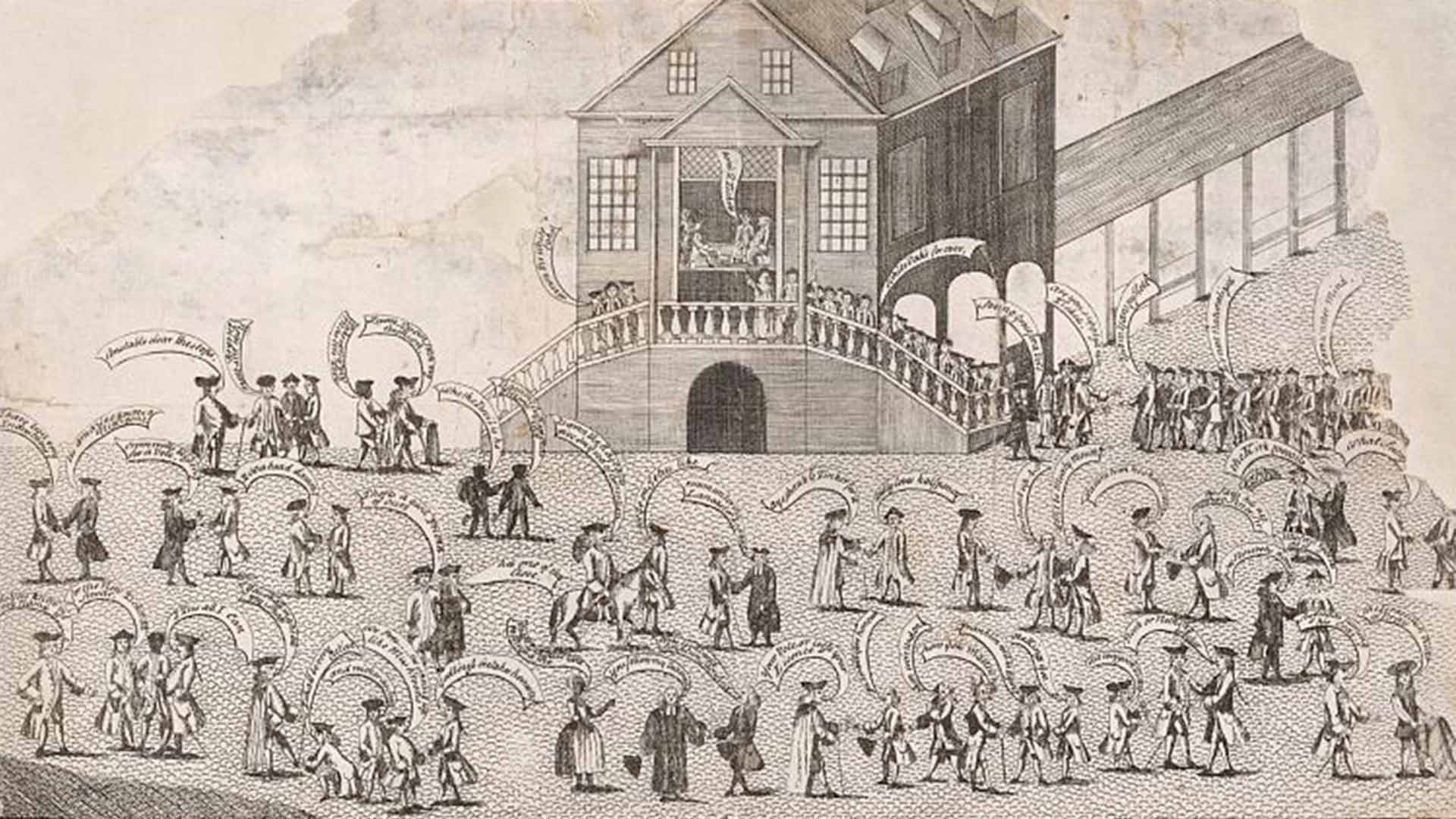
“The Election, A Medley, Humbly Inscribed to Squire Lilliput, Professor of Scurrility.” By Henry Dawkins. Philadelphia: 1764. Library of Congress Prints and Photographs Division
This cartoon depicts an old Philadelphia courthouse, where during a 1764 election, white men line up at the steps to cast their votes. Others in the foreground, including clergymen, servants and slaves, comment on the candidates and current events.
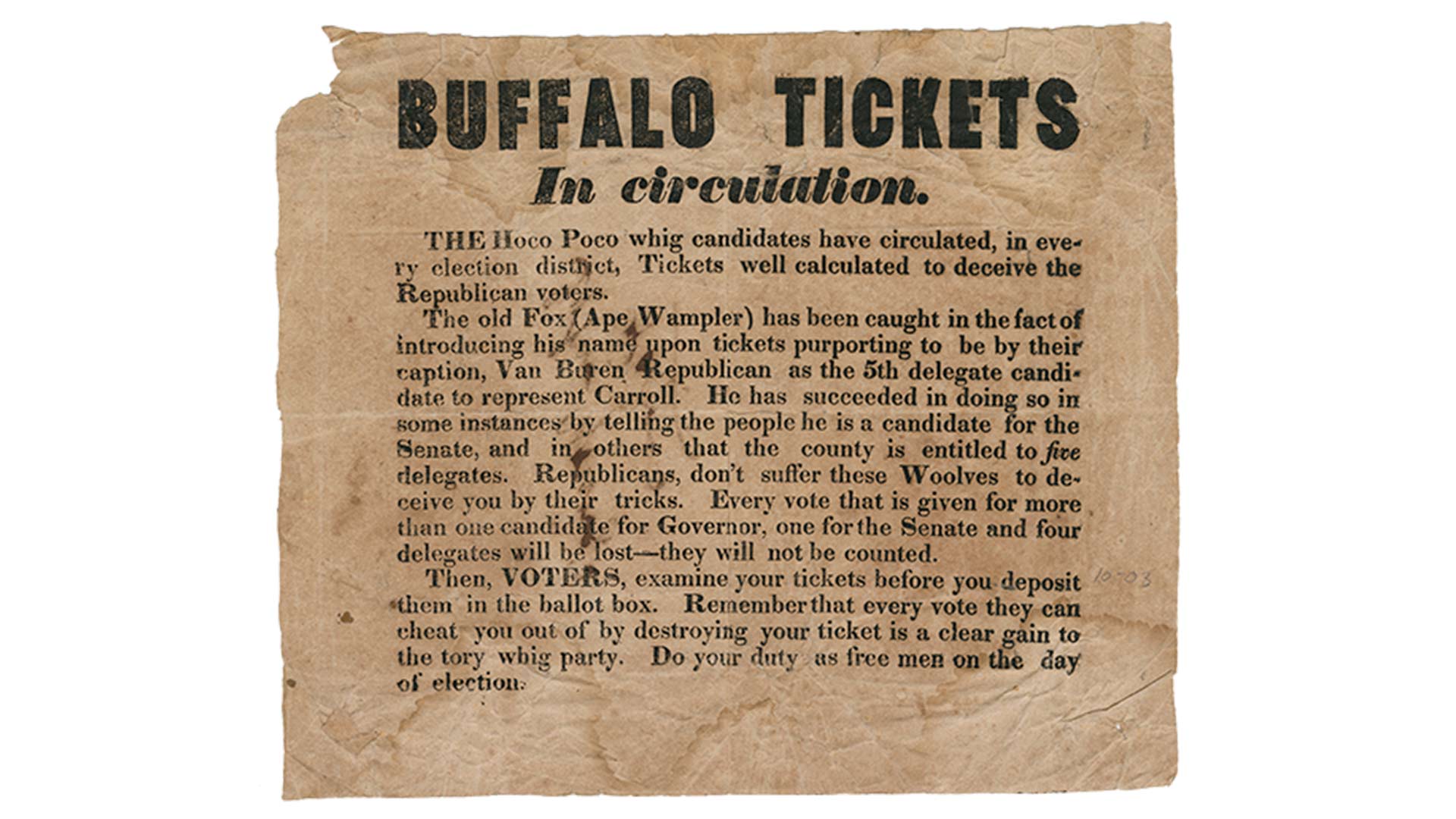
Broadside Warning of Election Fraud in Carroll County c. 1837. Maryland Manuscripts collection
Early voting practices in America varied by state. Confusion, manipulation and claims of fraud were commonplace. This broadside warns against fraudulent tickets being circulated in Maryland. Voters are encouraged to carefully examine their tickets before casting a ballot.
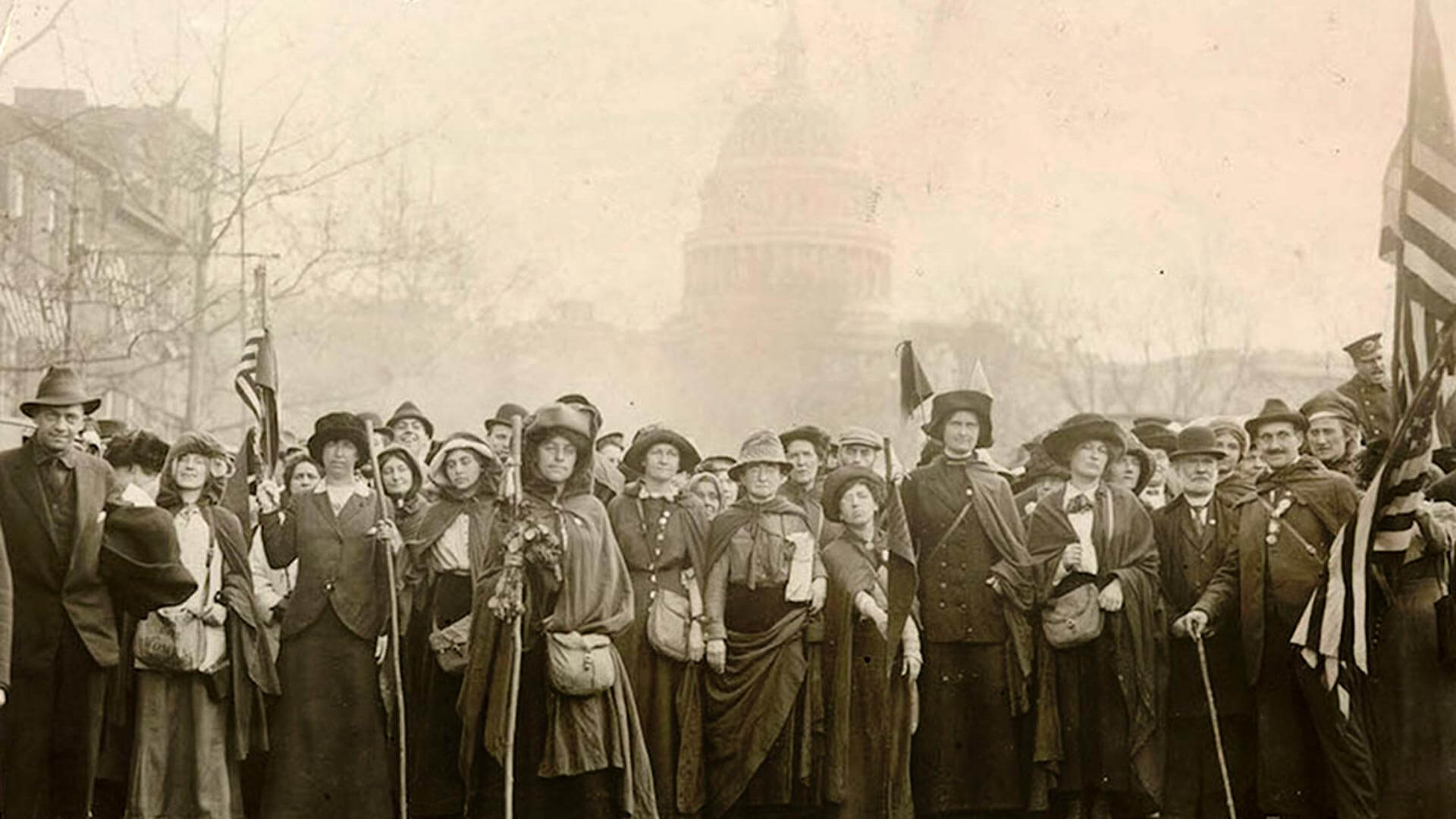
Photograph. Washington, DC, 1 March 1913. Baltimore News American collection
Suffragists gather in front of the U.S. Capitol on March 1, 1913, three days before the Great Suffrage Parade of 1913, the first civil rights parade held in Washington, D.C. Many of the spectators, in town for President Woodrow Wilson's inauguration, spat at and jeered at the marchers.
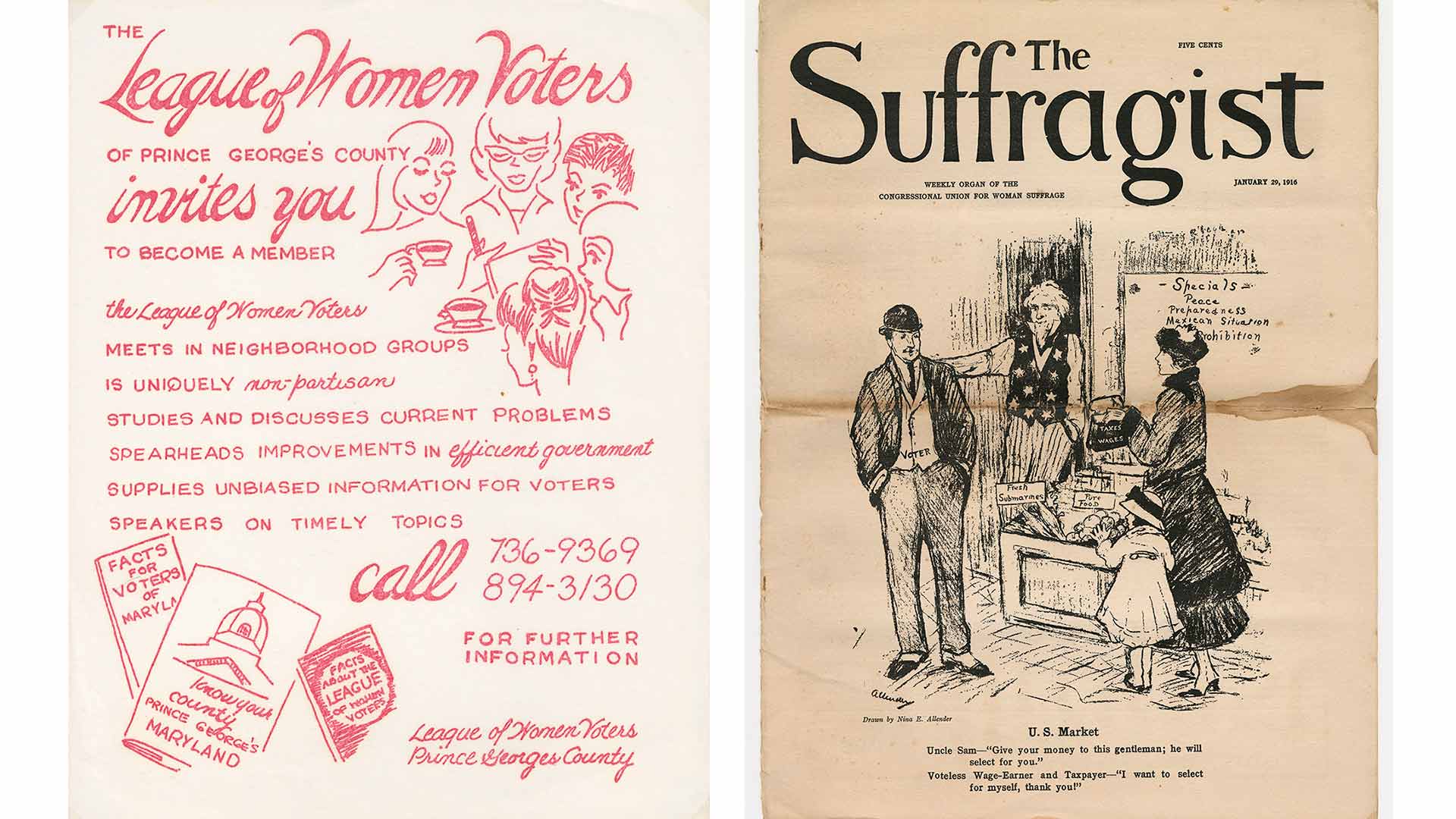 The League of Women Voters of Prince George’s County Invites You To Become A Member. Prince George’s County, Maryland. League of Women Voters of Prince George’s County records | The Suffragist, Jan. 29, 1916. Congressional Union for Woman Suffrage Newsletter collection
The League of Women Voters of Prince George’s County Invites You To Become A Member. Prince George’s County, Maryland. League of Women Voters of Prince George’s County records | The Suffragist, Jan. 29, 1916. Congressional Union for Woman Suffrage Newsletter collection
The League of Women Voters, founded in 1920 by Carrie Chapman Catt to educate newly enfranchised women about their right to vote, seeks new members in its Prince George’s County chapter. The Suffragist, first published in November 1913, was a weekly newspaper published by Alice Paul and the Congressional Union for Woman Suffrage (later the National Woman’s Party).
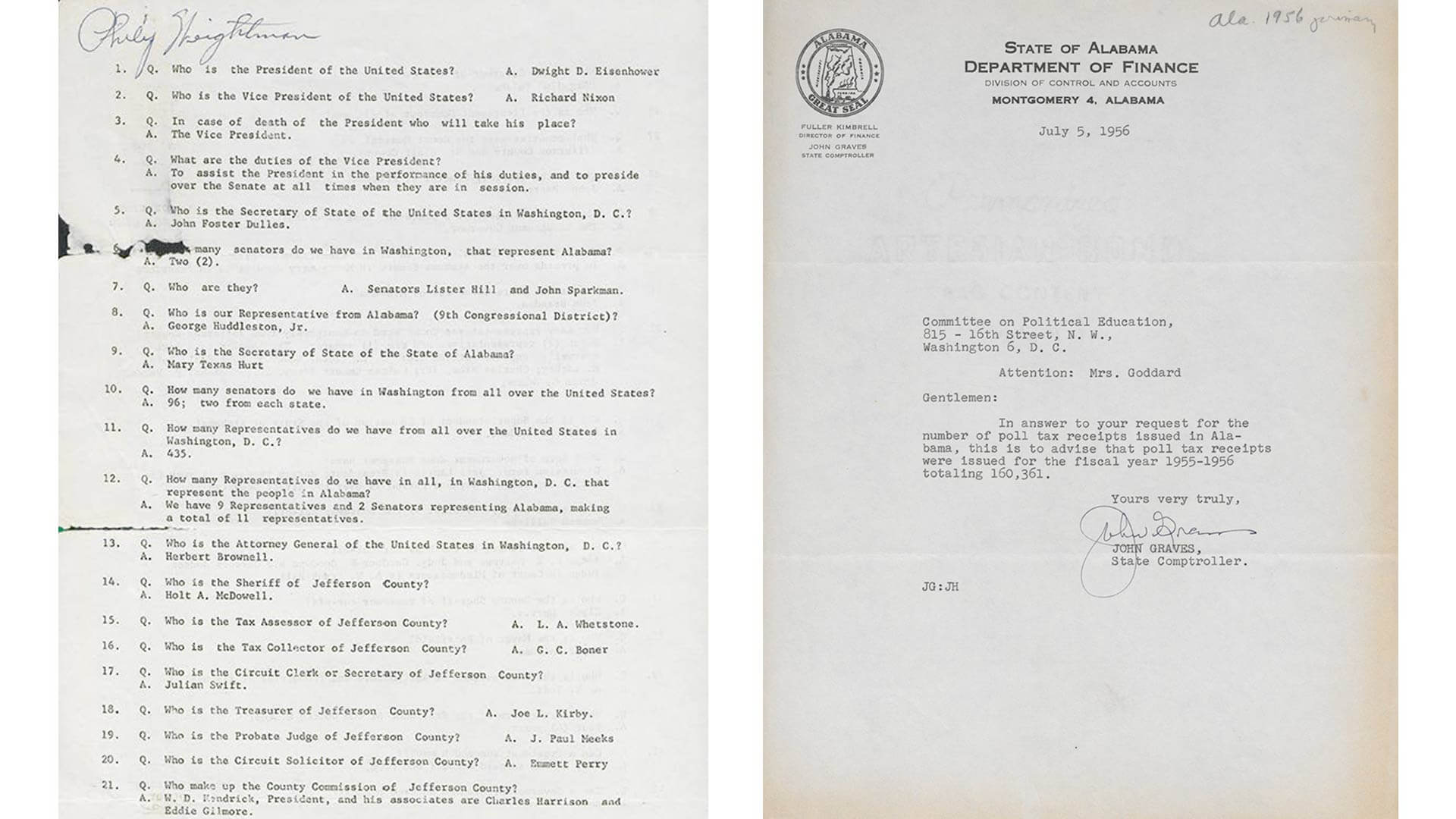
Sample Questions and Answers on Literacy Tests. Jefferson County, Alabama, 1950s. AFL-CIO Civil Rights Department records | Letter Re: Poll Tax Receipts. Montgomery, Alabama, 1956. AFL-CIO Civil Rights Department records
Literacy tests and poll taxes such as these from Alabama, along with intimidation, were the primary disenfranchising agents of Black Americans before the passage of the Voting Rights Act.
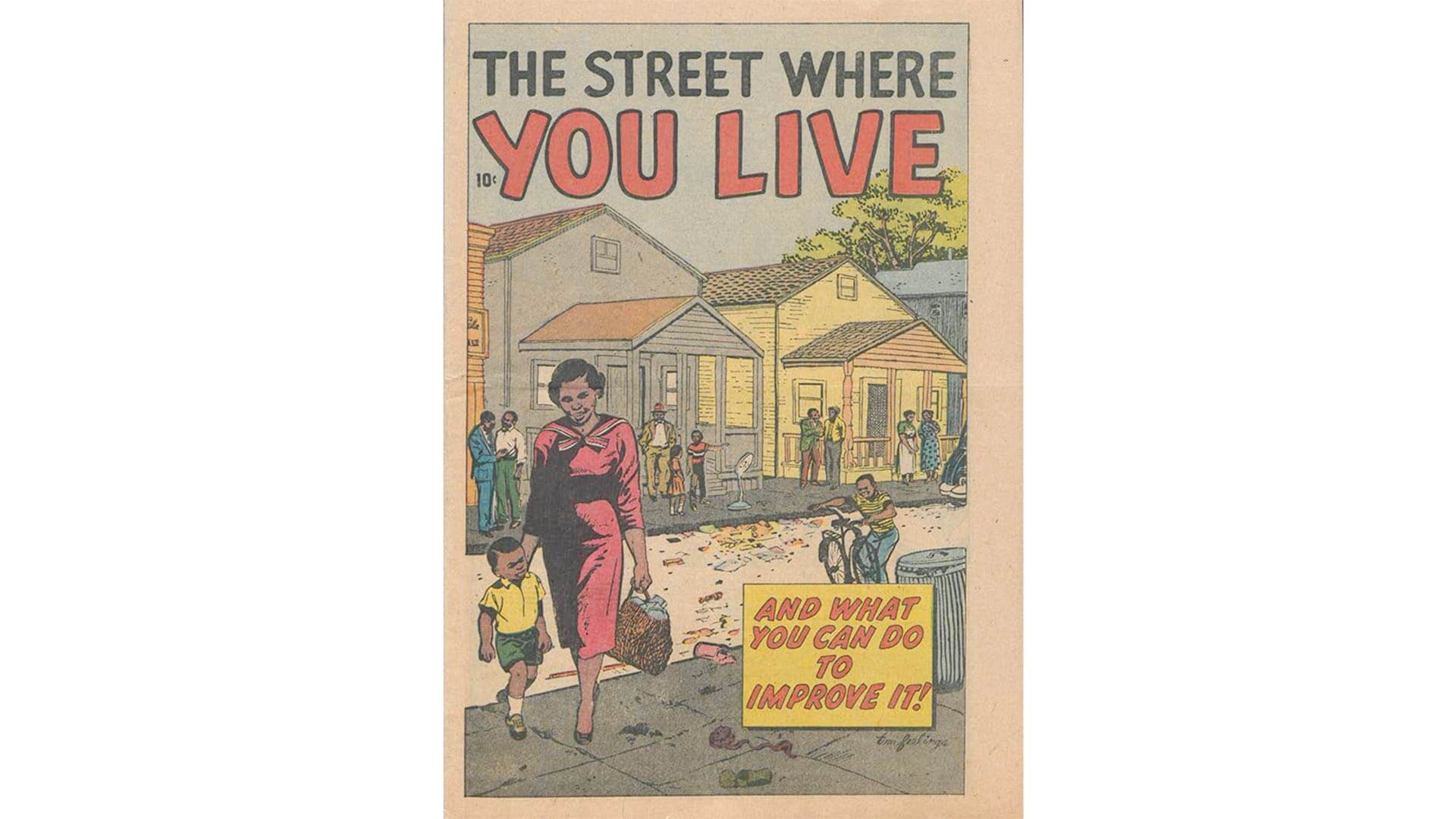
“The Street Where You Live” Comic Book. 1960. AFL-CIO Civil Rights Department records
This short comic published by the NAACP addresses race relations in the South and stresses the importance of voting to Black communities.
Topics
Campus & CommunityUnits
University Libraries